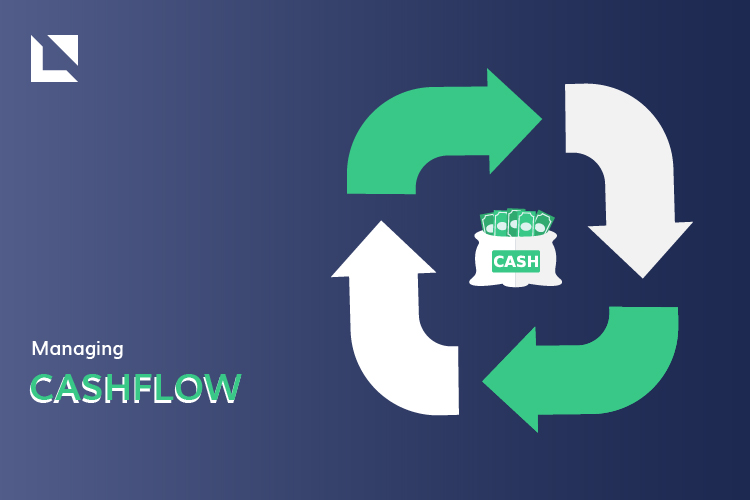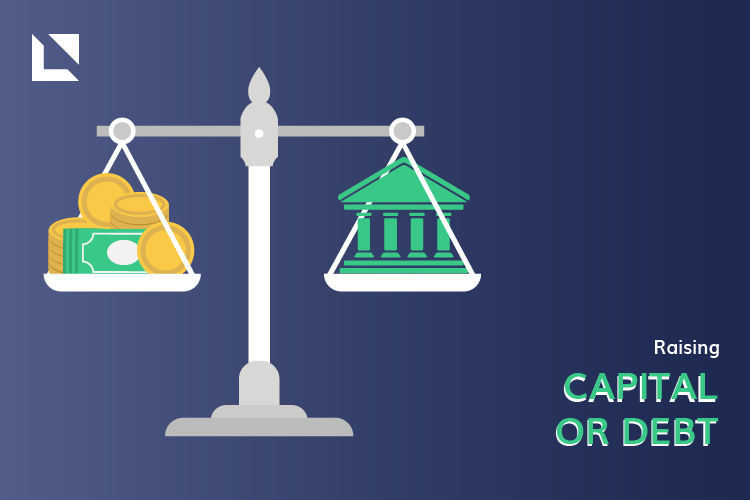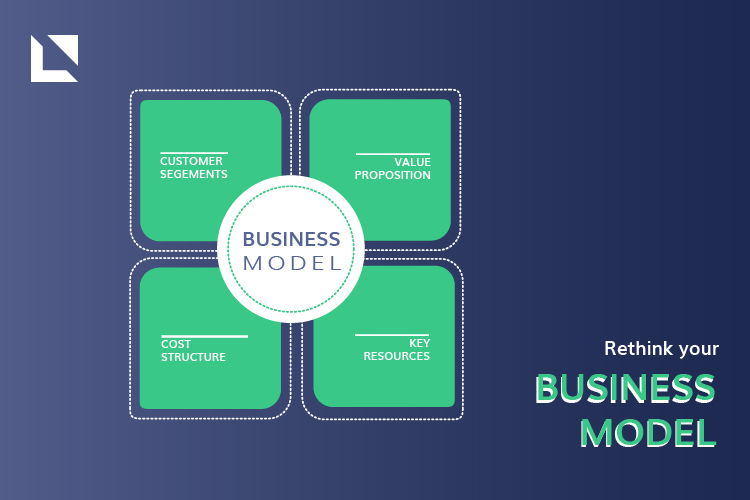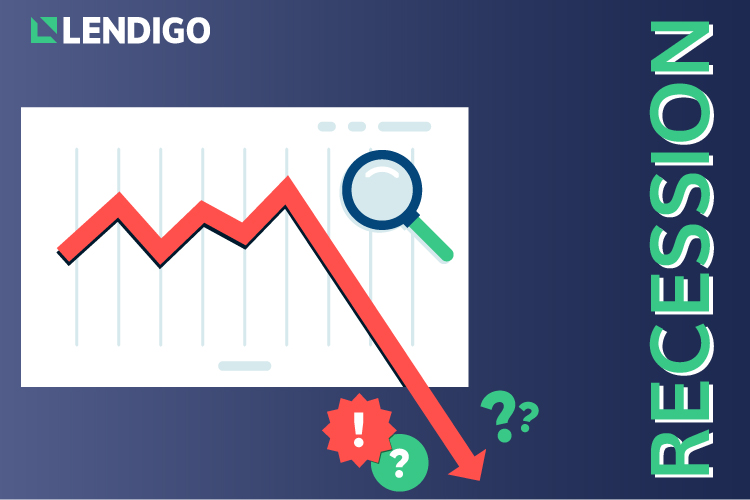There’s a saying that tough times never last but tough people do.
Apparently, there’s also a best selling book of the same title. Anyways, the truth is, economic cycles go through an expansion and contraction phase and usually when it bottoms out, we’re either in a recession or worse, a depression. This is part of life and we must accept it. Usually, no one knows when a recession would come, but there are always warning signals in the air, especially with the current coronavirus pandemic we are experiencing globally.
My motto has always been that if you prepare well enough for the bad times, you’ll come out at the end with a trophy. From my dealing with many small businesses, these are tips I’ve learned that could help make or break your business but none is more important than the 1st one below:
1. Managing Cash Flow

Cash is the lifeblood of your business, not revenues, not profit but actual cash. If you’re not cash flow positive, you really need to worry as many companies have gone into bankruptcy because they couldn’t pay their bills despite publishing robust revenues. If you’re still a bit lost about what I’m talking about, I’ll help you with a simple and brief explanation. Let’s say your business sells office supplies to large corporations on 30-day deferred payment terms. Upon confirmation of delivery of items to the buyer, on your books you’ve earned a specific amount of revenues, however, you’ve not received cash payment for it. If the buyer always pays on time, then the business model seems sustainable, however, if there are always delays in payments and in Nigeria, many businesses can testify to delays of more than 2x or 3x what they had agreed with the buyer, you may have some constraints in paying bills and running your business effectively. Collecting receivables is just one of many steps in managing your cash flow. There are several others including managing inventory purchases, reducing discretionary spending and buying illiquid assets that do not generate core business cash inflows.
The idea of being cash flow positive is to receive cash payments much earlier than when your expenses are due.
2. Raising Capital or Debt

There are two kinds of business owners I see during a recessionary period. Those that are pessimistic and worry about how they can make enough sales to satisfy their investors or pay back a loan or those that see it as an opportunity to seize market share and invest when everything is dirt cheap. The truth is neither of these mindsets are wrong; it always boils down to preparedness and executing a winning market strategy. Timing is extremely important when a recession is about to hit; if you miss getting a good deal on capital or debt, you’re likely going to pay a heftier price once the recession is on its way. Raising capital or debt would be more expensive and the terms are usually more stringent for obvious reasons. Last month, I saw a few customers come to Lendigo to request financing towards inventory purchase for specific goods (food & beverage, medical supplies, and personal care). Little did I know that they had seen the coronavirus carnage in Asia and Europe and within days after the first infected victim was announced in Nigeria, they had crafted a plan to increase their stock levels ASAP. This simple strategy allowed them to sell more goods at a considerably higher margin when panic buying started recently.
Timing is extremely important when a recession is about to hit; if you miss getting a good deal on capital or debt, you’re likely going to pay a heftier price once the recession is on its way.
3. Protect your Market Share through customer engagement

The worst thing that can happen to your business during a recession is if your competitors start acquiring your customers. It’s surprising how many small businesses don’t have a strong relationship with their existing customers in this modern age of technology. I’ve visited stores where my personal details are collected and I never hear from them again. Not even once. How do they expect me to be a loyal customer without getting my feedback, sharing some useful periodic content or engaging me in another way. Creating a communication funnel for your customers has many benefits. It can lead to a longer life-time value, act as a source of referrals amongst many others.
The worst thing that can happen to your business during a recession is if your competitors start acquiring your customers.
4. Spend more on Customer Acquisitions

Many business owners plan to spend very little money on marketing and sales activities during a downturn because of the expectation of lower ROI. This is usually not a great strategy as customers are less loyal during a recessionary period and are usually on the lookout for good deals. Creating visibility and a need for your product during this period could yield lasting results even after the recession ends. There’s no better time to be tactically aggressive than during an economic downturn. Re-strategize your sales goals and build a marketing funnel whilst giving minimal discounts if necessary. You may not see immediate results, but you’ll be on top of mind once the customer is ready to make a purchase.
Creating visibility and a need for your product during this period could yield lasting results even after the recession ends.
5. Reward High Performing Employees:

Employees are the lifeblood of any small business. They are able to lift some of the unnecessary weight off your shoulder, allowing you to focus on deal-making and other critical business needs. High performing employees tend to go above and beyond their core responsibilities, making them quite valuable and almost indispensable during a period of recession, when the pressure of running the business could seem overwhelming. Top performers in your organization don’t just need a pat in the back, they also need to know there’s a possibility for growth and new challenges for them down the line. Obviously, they’ll expect that these sets of responsibilities would come with a reward, usually monetary or other perks that could interest them.
Statistically speaking, your top-performing employees are likely to seek new job opportunities during a recession. This is because of the uncertainty about their future within your organization. If you don’t have that communication earlier on, they could be accepting offers from your competitors.
Top performers in your organization don’t just need a pat in the back, they also need to know there’s a possibility for growth and new challenges for them down the line.
6. Rethink your current business model:

A business model is about how you create and capture value for a specific target market sustainably. It should be dynamic and continually evolving over time if the business wants to have any competitive advantage. Typically, if you’ve been running your company for a while, you’re likely to keep doing the same thing over and over again because you’ve likely achieved a relative amount of success. There’s a common saying that, what got you here, won’t get you there. This is because the world is changing rapidly mainly due to technological advancements, the likes we’ve never seen before.
You need to start thinking of how you intend to position your company for further future success. Are there new opportunities to expand your distribution model knowing that consumers would always prefer to buy goods more conveniently, at a cheaper price and receive immediate delivery of the items purchased? One of my biggest customers broke the value chain distribution model created by FMCGs to sell directly to consumers via her e-commerce store. This way, she gets to keep more of the margins.
Are there new pricing models that you haven’t considered that allow you to generate customer loyalty and lifetime value? It was only a few years ago in Nigeria when gym memberships and having your personal broadband internet meant you had to pay several months in advance. A few companies broke this cycle by allowing for monthly payments., which is in line with how their customers earn incomes.
As a small business owner, you’ll need to start testing various assumptions on a small scale based on market information and customer feedback before fully implementing a new business model.
You need to start thinking of how you intend to position your company for further future success.

